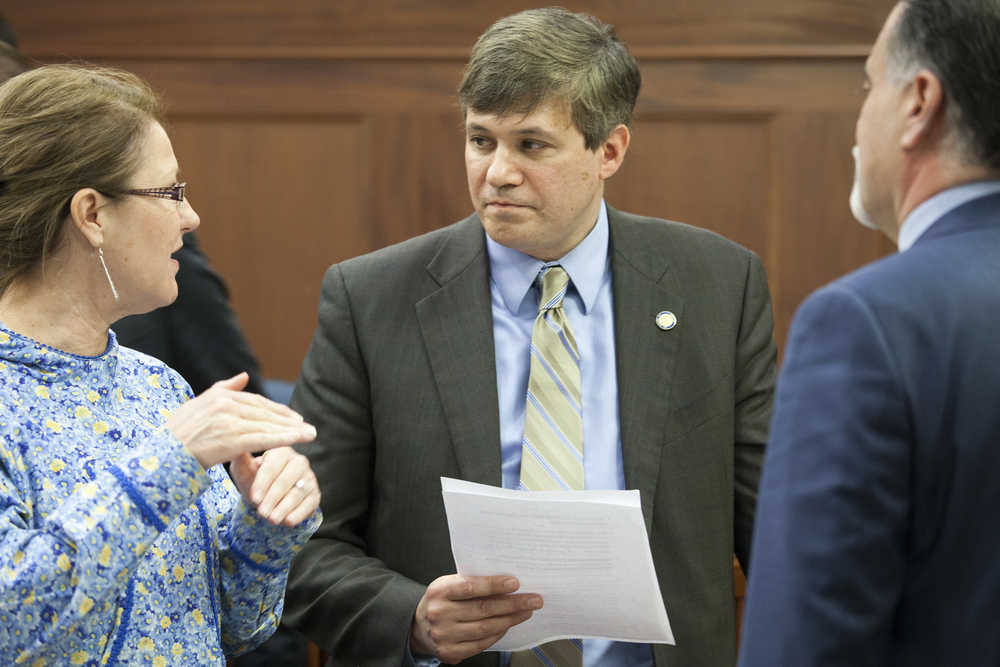JUNEAU, Alaska — Alaska legislators were headed into overtime Sunday as they continued to wrestle with major issues on the session’s last scheduled day.
House Speaker Mike Chenault said legislative leaders planned to keep working past the voter-approved 90-day session limit in the hopes of reaching a compromise on outstanding issues, like oil and gas tax credits, in the next few days.
The Alaska Constitution allows for regular sessions of up to 121 days with an option to extend for another 10.
Potentially disruptive renovation work is scheduled to begin on the Capitol on Monday. The construction schedule aims to have the Capitol effectively cleared out by May 2.
Gov. Bill Walker wants lawmakers to approve a fiscal plan to help dig the state out of a multibillion-dollar budget deficit exacerbated by low oil prices.
He has said that he considers reduced spending, restructuring of Alaska Permanent Fund earnings and the dividend program and new revenues that include a broad-based tax as key elements to achieving a sustainable budget.
He has defined a broad-based tax as an income or sales tax. A sales tax has not been proposed.
A stumbling block for legislators, particularly in the House, has been how far to push changes to the oil and gas tax credit system.
While some want broad changes, seeing the system as unsustainable, others worry about the impact big changes or a tax increase will have on an industry also being hit by low prices.
Resolution on that issue is seen as key to making further progress on the budget and revenue bills. A budget meeting scheduled for Sunday afternoon was canceled. A notice was posted for a budget meeting Monday.That’s not to say that getting agreement on other pieces will be easy.
Legislators have been divided, too, on taxes and want to be careful in weighing their options for use of permanent fund earnings.
“We want to make sure that we adopt the right plan going forward,” said Rep. Cathy Munoz, R-Juneau, and a member of the House Finance Committee. To try to rush such a “monumental decision,” in a day or two would be a mistake, she said.
Chenault, R-Nikiski, said Sunday afternoon that depending on the noise level from the Capitol work, hearings could be delayed until later in the day.
Meanwhile Sunday, work continued at the Capitol amid the end-of-session ritual of boxing up offices.
Both the House and Senate held floor sessions, trying to clear a myriad of bills.
One big one that gained final passage was a measure aimed at curbing and containing costs within the state Medicaid program, which, like tax credits, has become a major budget item.
House Finance unveiled a draft rewrite of a bill allowing for annual draws from permanent fund earnings of 5.25 percent of the average market value of the fund for the first five of the preceding six fiscal years.The rewrite calls for a $1,000 dividend each of the next three fiscal years.
After that it would be based on a formula that includes a portion of the draw and an amount equal to 20 percent of royalties for the prior year. The rewrite also aims to provide a way to further inflation proof the fund principal and impose a limit on the draw as oil revenue rebounds.
The committee also released a working draft of Walker’s income tax bill with an effective date of Jan. 1, 2019, two years later than Walker initially proposed. Co-chair Rep. Steve Thompson has said he would like to see the bill advanced to the floor for a vote, but he couldn’t say whether it would pass.

